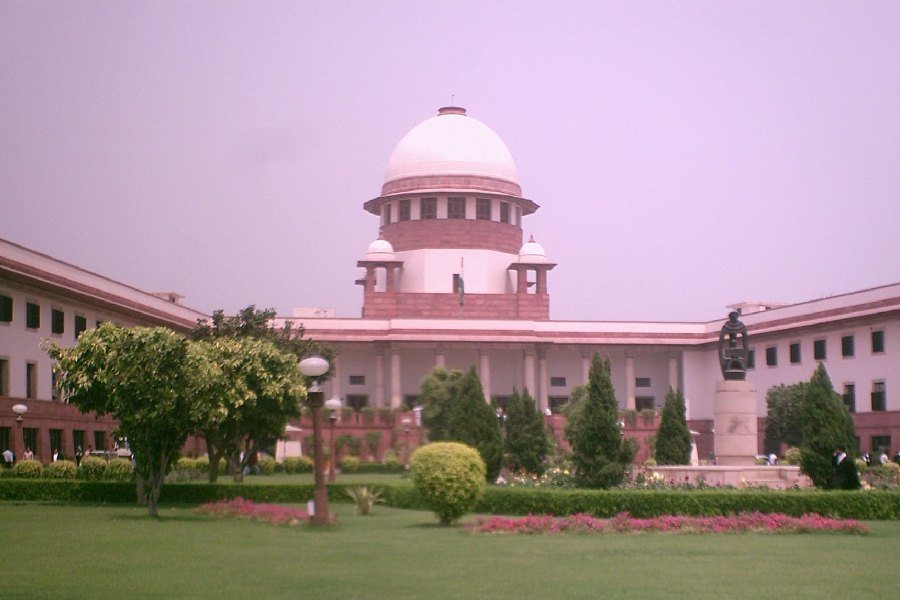The Supreme Court came down heavily on the Chhattisgarh authorities underlining it should be leading by example to promote women empowerment in rural areas observing a female sarpanch was removed on "flimsy grounds" of delay in the completion of her work.
Justice Surya Kant and Ujjal Bhuyan further termed it a "colonial mindset" and ordered her reinstatement besides saddling the government with Rs 1 lakh costs to be paid to her for unwanted litigation and harassment.
"The administrative authorities, with their colonial mindset, have regrettably failed yet again to recognise the fundamental distinction between an elected public representative and a selected public servant. Invariably, elected representatives like the appellant are often treated as subordinate to bureaucrats compelled to comply with directives that serve to encroach upon their autonomy and impinge their accountability," read the bench's strongly-worded order passed on November 14.
The bench highlighted that the administrative authorities, being custodians of actual powers and affluent enough, should lead by example, making efforts to promote women's empowerment and support women-led initiatives in rural and remote areas.
"In this context, we must emphasise that as a nation striving to become an economic powerhouse, it is distressing to witness such incidents occurring consistently and being normalised, so much so that they bear striking similarities even in geographically distant regions," the top court said.
The apex court further said the "misconceived and self-styled supervisory power" was asserted with an intention to equate elected representatives with public servants holding civil posts, completely disregarding the democratic legitimacy conferred by election.
"It deeply concerns us that there is a recurring pattern of similar cases, where administrative authorities and village panchayat members collude to exact vendettas against female sarpanches. Such instances highlight a systemic issue of prejudice and discrimination," the order underlined.
The bench termed this "entrenched" bias as "disheartening" while calling for a "serious introspection and reform".
"Alarmingly, the removal of an elected female representative, especially in rural and remote areas, is frequently treated as a casual matter, wherein disregarding principles of natural justice and democratic processes is treated as a time-honoured tradition," it said.
Sonam Lakra, 27, challenged her removal by the authorities after being elected as a sarpanch of the Sajbahar Panchayat in Jashpur District in the state in January, 2020.
It said instead of adopting regressive attitudes that discourage women in elected positions, they must foster an environment that encourages their participation and leadership in governance.
The bench directed the Chhattisgarh chief secretary, to pay Rs 1 lakh to the sarpanch within four weeks and conduct an inquiry against the delinquent officials responsible for her "harassment". The apex court allowed the state government to recover the costs from the erring officials in accordance with the principles of natural justice.
It said a prima facie examination of the case trajectory revealed a calculated effort by members of the gram panchayat, hands in glove with administrative authorities, to obstruct the her initiatives.
"These individuals sought to undermine her credibility with unfounded accusations of misconduct and, when these stratagems failed, resorted to sabotaging development projects. This concerted campaign ultimately led to her unjust removal as the duly elected sarpanch. It is a cause for concern that at every step, the appellant faced relentless obstacles and received little to no support in her endeavours," the bench noted.
What further muddied the already murky waters, the court noted, was the selective accountability imposed on her for the alleged delay in completing the development works.
The verdict noted it was done despite the fact that the responsibility for the projects was shared among multiple stakeholders, including the sub-divisional officer, rural engineering services, the deputy engineer, the technical officer, the CEO of the Janpad Panchayat, and the executing agency.
"It is self evident that construction projects require coordinated efforts from engineers, contractors, timely supply of materials, and are subject to the vagaries of weather, etc. Holding the sarpanch solely accountable for delays, without evidence of her failing in allocating work or performing a duty specific to her elected position, is totally atrocious. We are convinced that these proceedings were initiated on a flimsy pretext, so as to remove the appellant from office under false and untenable grounds," it said.
The top court found it incomprehensible how the SDO (revenue) issued the order dated January 18, 2024, directing the removal of an elected representative in such a "lackadaisical and hasty manner".
While setting aside the high court's February 29 order, which dismissed her plea, the bench said, the high court had vast discretion to entertain a writ petition "especially in cases where the executive has blatantly and brazenly misused its power to weaken democratic values at the grass root level".
Except for the headline, this story has not been edited by The Telegraph Online staff and has been published from a syndicated feed.










